Table of Contents
ToggleIntroduction
Brewing your own beer is an exciting and rewarding hobby for many beer enthusiasts. Whether you’re a homebrewer looking to step up your game or a commercial brewer seeking to expand your operations, a high-quality brewing system for sale is essential for achieving consistent and delicious results. In this article, we will explore the world of brewing systems for sale, covering different types, components, considerations for purchase, popular brands, setup tips, maintenance, advantages, drawbacks, sustainability aspects, and more.
What is a Brewing System?
A brewing system for sale is a setup used to produce beer or other fermented beverages on a small or large scale. It typically consists of several key components that work together to facilitate the brewing process, from mashing the grains to fermenting the wort and finally packaging the finished beer.
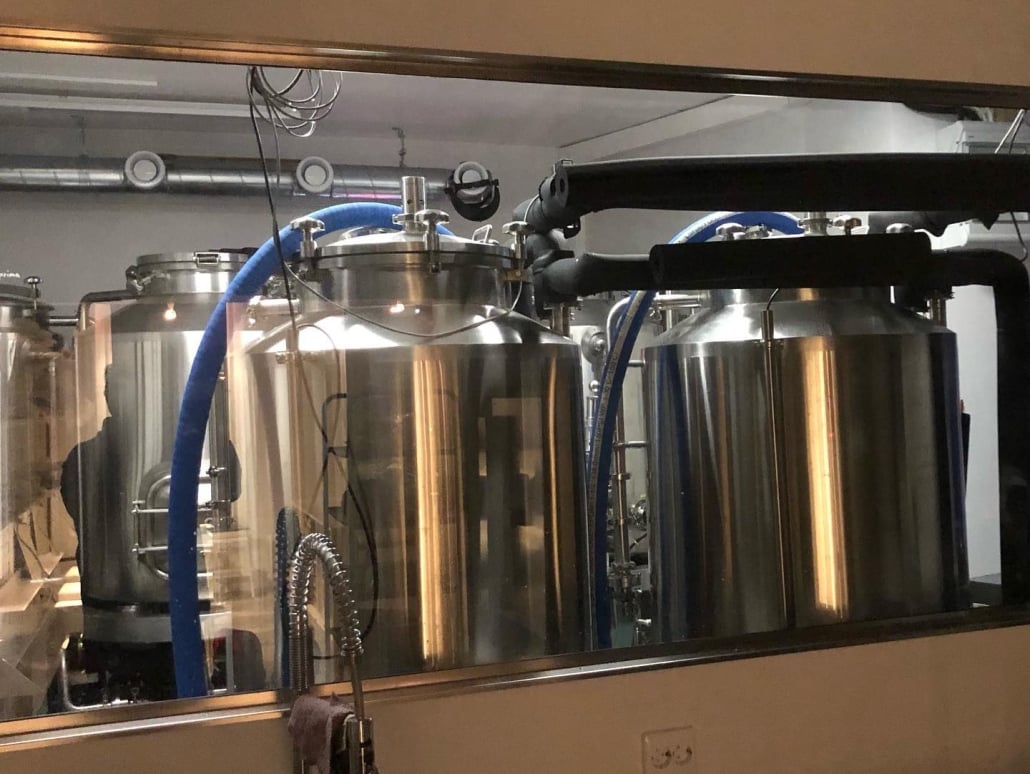
Types of Brewing Systems
3.1. Home Brewing Systems
Home brewing systems are designed for enthusiasts who brew beer at home for personal consumption or small gatherings. They come in various sizes, with electric or propane heating options, and are suitable for producing batches ranging from a few gallons to around 10 gallons.
3.2. Commercial Brewing Systems
Commercial brewing systems are used by breweries and craft beer producers to brew beer for distribution and sale. These systems are much larger and more complex, capable of producing hundreds to thousands of gallons of beer in a single batch.
3.3. Craft Brewing Systems
Craft brewing systems fall between home brewing and commercial systems. They are used by small to medium-sized breweries and microbreweries, offering more capacity and advanced features than home systems but without the scale of commercial setups.
Components of a Brewing System
A brewing system for sale comprises several essential components:
4.1. Brew Kettle
The brew kettle is where the brewing process begins, and it’s where the wort (unfermented beer) is boiled with hops and other ingredients.
4.2. Mash Tun
The mash tun is where the milled grains are mixed with water and heated to convert starches into fermentable sugars, creating a sugary liquid known as wort.
4.3. Fermentation Vessels
Fermentation vessels are containers where the yeast interacts with the wort to produce alcohol and carbonation during fermentation.
4.4. Cooling System
The cooling system helps rapidly reduce the temperature of the boiled wort to a level suitable for yeast fermentation.
4.5. Control Panel
The control panel allows brewers to manage and adjust various parameters during the brewing process, such as temperature and pump speed.
4.6. Pumps and Valves
Pumps and valves facilitate the movement of liquids throughout the brewing system for sale, controlling flow rates and direction.
4.7. Wort Chiller
The wort chiller further cools the boiled wort, promoting rapid cooling and preventing bacterial contamination.
Factors to Consider When Buying a Brewing System
When looking for a brewing system for sale, consider the following factors:
5.1. Batch Size
Determine the batch size you want to brew regularly, as different systems are designed for varying capacities.
5.2. Brewing Capacity
Consider your production goals, whether you’re brewing for personal consumption or commercial purposes.
5.3. Material Quality
Invest in a system made from durable and food-grade materials to ensure longevity and safe brewing.
5.4. Control Features
Look for systems with user-friendly control panels that offer temperature adjustments and automation options.
5.5. Space and Portability
Consider the available space for your brewing setup and whether you need a portable system.
5.6. Budget
Determine your budget and compare different brewing systems that fit within your financial range.
Where to Find Brewing Systems for Sale
When you’re ready to purchase a brewing system, there are several places where you can find them:
7.1. Local Homebrew Shops
Check out your local homebrew supply stores, as they often carry a variety of brewing systems suitable for different levels of expertise.
7.2. Online Retailers
Online marketplaces such as Amazon, eBay, and specialized brewing equipment websites offer a vast selection of brewing systems.
7.3. Secondhand Marketplaces
Consider exploring secondhand marketplaces like Craigslist or brewing forums for used brewing systems at potentially discounted prices.
7.4. Directly from Manufacturers
Purchasing directly from manufacturers can be a great option, as you can get the latest models and benefit from their support services.
Tips for Setting Up and Using a Brewing System
Getting the most out of your brewing system for sale requires proper setup and use. Here are some helpful tips:
8.1. Sanitation
Maintain a high level of sanitation throughout the brewing process to avoid contamination and off-flavors in your beer.
8.2. Following Recipes
Stick to well-tested recipes, especially if you’re a beginner, to get familiar with the brewing process and its results.
8.3. Monitoring Fermentation
Regularly monitor the fermentation process, as it plays a crucial role in determining the final taste and characteristics of the beer.
8.4. Adjusting Brewing Parameters
Experiment with different brewing parameters such as mash temperature and hop additions to customize your beer’s flavors.
8.5. Cleaning and Maintenance
Regularly clean and maintain your brewing system for sale to ensure its longevity and optimal performance.
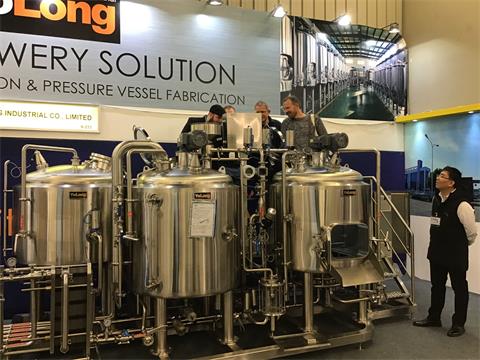
Brewing System Maintenance and Troubleshooting
To keep your brewing system for sale running smoothly, here are some maintenance and troubleshooting tips:
9.1. Cleaning and Sanitizing
Clean and sanitize all components after each use to prevent the growth of bacteria or unwanted flavors in your beer.
9.2. Equipment Inspection
Periodically inspect your brewing system for any signs of wear, loose fittings, or potential issues.
9.3. Dealing with Common Issues
Educate yourself on common brewing system for sale problems and their solutions, such as leaks or temperature inconsistencies.
9.4. Contacting Customer Support
If you encounter persistent issues or technical difficulties, don’t hesitate to reach out to the manufacturer’s customer support for assistance.
Advantages of Using a Brewing System
Investing in a quality brewing system for sale offers numerous benefits:
10.1. Consistency and Quality
A brewing system allows you to replicate successful batches and maintain consistent beer quality.
10.2. Time and Labor Savings
Automated features in some brewing systems save time and reduce the manual labor required during the brewing process.
10.3. Experimentation and Creativity
With a reliable brewing system for sale, you can confidently experiment with new recipes and brewing techniques.
Potential Drawbacks of Brewing Systems
While brewing systems have many advantages, there are some potential drawbacks to consider:
11.1. Cost
Investing in a brewing system, especially a commercial-grade one, can be a significant financial commitment.
11.2. Space Requirements
Large brewing systems require adequate space for installation and operation, which may be a limitation for some brewers.
11.3. Learning Curve
Operating a brewing system efficiently may require a learning curve, especially for those new to brewing.
Sustainability and Brewing Systems
Brewing systems can impact the environment in various ways. Here’s how sustainability plays a role:
12.1. Energy Efficiency
Consider energy-efficient brewing systems to reduce your environmental footprint.
12.2. Water Usage
Optimize your brewing process to minimize water consumption and wastewater generation.
12.3. Waste Management
Implement proper waste management practices, such as reusing or recycling brewing byproducts.
Brewing System Maintenance and Upgrades
To ensure the longevity of your brewing system and keep up with brewing advancements, follow these steps:
13.1. Regular Maintenance Schedule
Establish a maintenance routine for cleaning, inspecting, and maintaining your brewing equipment.
13.2. Upgrading Equipment
Stay informed about the latest brewing technology and consider upgrading components when necessary.
13.3. Incorporating Advanced Features
As your brewing skills improve, explore advanced features in your brewing system to enhance your brewing capabilities.
Conclusion
A brewing system is an essential tool for brewers looking to produce high-quality beer consistently. Whether you’re a passionate homebrewer or an aspiring craft brewery owner, investing in the right brewing system can significantly impact your brewing experience. Consider your brewing needs, budget, and future expansion plans before choosing the best system for your requirements. With proper maintenance and attention to sustainability, your brewing system will serve you well for many batches to come, unlocking new levels of creativity and satisfaction in your brewing journey.
FAQs
- Q: How much does a brewing system cost? A: The cost of a brewing system varies widely depending on the type, size, and features. Home brewing systems can range from a few hundred to a few thousand dollars, while commercial systems can cost tens of thousands of dollars.
- Q: Can I use a home brewing system for commercial purposes? A: Home brewing systems are generally designed for personal use and may not have the capacity or features required for commercial-scale production. It’s best to invest in a commercial brewing system for professional brewing operations.
- Q: Do brewing systems come with warranties? A: Yes, most reputable brewing system manufacturers offer warranties on their products, covering defects and malfunctions for a specified period. Be sure to check the warranty terms before making a purchase.
- Q: Are there portable brewing systems available? A: Yes, some home brewing systems are designed to be portable and compact, making them suitable for brewers with limited space or those who enjoy brewing on the go.
- Q: Can I brew other beverages besides beer with a brewing system? A: While brewing systems are primarily designed for beer production, some versatile systems can be adapted for making other fermented beverages like cider, mead, or kombucha. Always check the system’s specifications and capabilities for alternative uses.

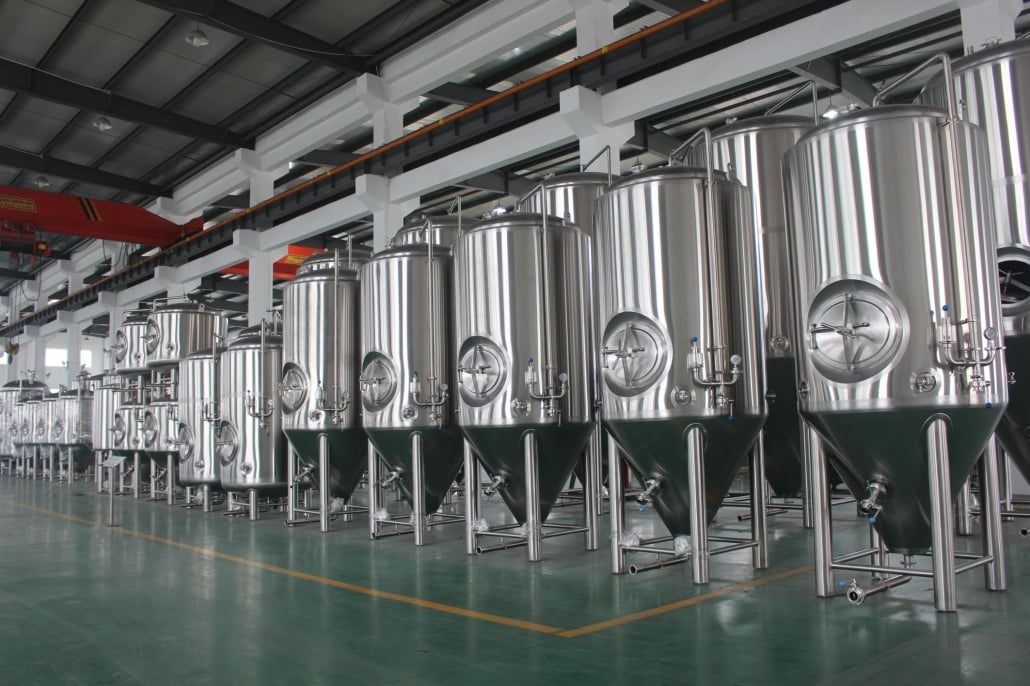
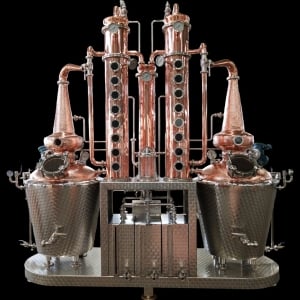
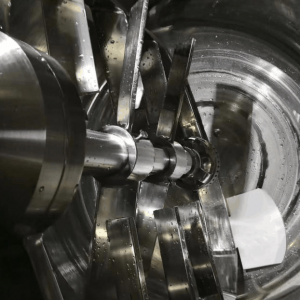
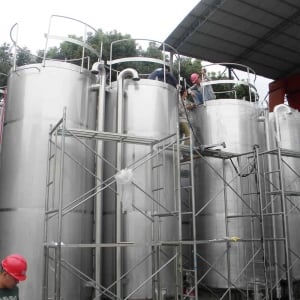
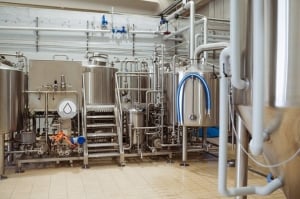
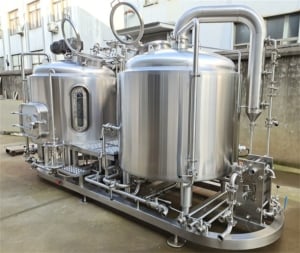


 12HL brewery setup
12HL brewery setup